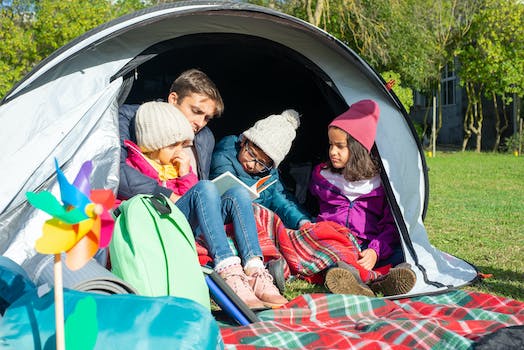Tourism plays a significant role in the lives of local communities, shaping their perspectives and influencing their overall sentiment. In this article, we delve into the insights and perspectives of locals towards tourism. By understanding their thoughts and experiences, we can gain a deeper understanding of the impact tourism has on communities and the way it is perceived by those who call these destinations home.
- 1. Positive Impacts of Tourism on Locals
- 1.1. Economic Benefits
- 1.2. Job Opportunities
- 1.3. Infrastructure Development
- 1.4. Cultural Exchange
- 1.5. Preservation of Local Heritage
- 2. Negative Effects of Tourism on Locals
- 2.1. Overcrowding and Congestion
- 2.2. Environmental Degradation
- 2.3. Increased Cost of Living
- 2.4. Cultural Erosion
- 2.5. Loss of Authenticity
- 3. Balancing Tourism and Local Needs
1. Positive Impacts of Tourism on Locals
Tourism can have several positive impacts on locals, contributing to the overall growth and development of a community. One major benefit is the economic boost that tourism brings. When tourists visit a destination, they spend money on accommodation, food, transportation, and various souvenirs or experiences. This influx of tourist spending helps to create employment opportunities for locals, especially in the hospitality and service industries. It can also lead to the growth of small businesses and encourage entrepreneurship.
Another positive impact of tourism on locals is the cultural exchange that occurs. When tourists visit a destination, they often show interest in the local culture, traditions, and history. This interaction can lead to a greater appreciation and preservation of the local heritage. It provides an opportunity for locals to share their customs, beliefs, and artistic expressions, fostering pride and a sense of identity within the community.
Additionally, tourism can have a positive effect on the infrastructure and development of a destination. To cater to the needs of tourists, local authorities often invest in improving transportation systems, building new attractions or landmarks, and upgrading public facilities. These developments benefit not only tourists but also locals, as they enhance the overall quality of life and create a more appealing environment.
Moreover, tourism can contribute to the conservation and protection of natural resources and wildlife. Many destinations rely on their natural beauty and biodiversity to attract tourists. This dependence on the environment often leads to the implementation of sustainable practices and conservation efforts. Locals become more aware of the importance of preserving their natural surroundings, leading to initiatives such as eco-tourism and wildlife conservation programs.
In conclusion, tourism can have several positive impacts on locals. It provides economic opportunities, promotes cultural exchange and preservation, enhances infrastructure and development, and encourages environmental conservation. However, it is crucial to strike a balance between tourism and the well-being of the local community to ensure long-term sustainability and mutual benefits.
1.1. Economic Benefits
Tourism brings numerous economic benefits to local communities. One of the positive impacts of tourism on locals is the generation of income and employment opportunities. When tourists visit a destination, they contribute to the local economy by spending money on accommodations, food, transportation, souvenirs, and various services. This influx of tourist expenditure helps stimulate business activities and creates job opportunities for residents. The tourism industry often provides employment in sectors such as hospitality, transportation, retail, and entertainment, thereby reducing unemployment rates and improving the standard of living for locals. Additionally, the income generated from tourism can be reinvested in the community to develop infrastructure, public facilities, and social welfare programs, further enhancing the overall economic well-being of the local population.
1.2. Job Opportunities
Tourism has brought about numerous job opportunities for locals, contributing to the economic growth of the community. The influx of tourists has led to increased demand for various services such as accommodation, transportation, food, and entertainment. As a result, locals have found employment opportunities in hotels, restaurants, tour agencies, and other related industries.
The tourism sector has also created indirect job opportunities for locals. With the growing number of tourists, there is a need for infrastructure development, maintenance, and improvement. This has led to the creation of construction jobs, as well as employment in sectors such as transportation, retail, and healthcare.
Moreover, the presence of tourists has encouraged locals to start their own businesses to cater to the needs and preferences of visitors. Small-scale entrepreneurs have established souvenir shops, craft markets, and local tour services, allowing them to showcase their culture and traditions while generating income.
The job opportunities provided by tourism have not only improved the income levels of locals but have also enhanced their skills and knowledge. Many individuals have gained valuable experience in customer service, hospitality, and marketing, which can be applied to other sectors as well. Additionally, the exposure to different cultures and languages has broadened the horizons of locals, promoting cultural exchange and understanding.
Overall, tourism has positively impacted the lives of locals by offering a wide range of job opportunities that contribute to economic growth, skill development, and cultural exchange.
1.3. Infrastructure Development
Infrastructure development is one of the positive impacts of tourism on locals. As tourism brings in a steady flow of visitors, the local government and authorities often invest in improving the infrastructure of the destination to cater to the needs of tourists. This includes upgrading transportation systems such as roads, airports, and public transportation, as well as enhancing facilities like hotels, restaurants, and tourist attractions.
The development of infrastructure not only benefits tourists but also has a direct impact on the lives of the local community. Improved roads and transportation make it easier for locals to commute and access essential services. Upgraded airports and transportation hubs create job opportunities and boost the local economy. Additionally, the enhancement of hotels and restaurants provides employment options for the locals in the hospitality industry.
Moreover, the development of tourist attractions and recreational facilities not only attracts visitors but also offers recreational opportunities for the locals. This can lead to an improved quality of life for the community, as they can enjoy the amenities and activities that were initially developed to cater to tourists.
Overall, the positive impacts of tourism on locals through infrastructure development are significant. It not only enhances the overall experience for tourists but also benefits the local community by creating employment opportunities, improving transportation systems, and offering recreational facilities.
1.4. Cultural Exchange
Cultural exchange is a significant aspect of tourism that brings positive impacts to locals. When tourists visit a particular destination, they have the opportunity to engage with the local culture, traditions, and way of life. This exchange of cultural knowledge and experiences fosters mutual understanding, appreciation, and respect between tourists and locals.
Through cultural exchange, tourists can learn about the unique customs, rituals, and traditions of the local community. They can participate in local festivals, try traditional cuisines, and engage in various cultural activities. This not only enriches their travel experiences but also creates a platform for locals to showcase and preserve their cultural heritage.
Moreover, cultural exchange promotes intercultural communication and dialogue. It allows locals to share their stories, perspectives, and insights with tourists, breaking down stereotypes and promoting a more inclusive and interconnected world. As tourists gain a deeper understanding of the local culture, they become more empathetic and respectful towards the host community.
In addition, cultural exchange can have a positive economic impact on locals. Tourists often purchase locally made crafts, artworks, and souvenirs, contributing to the livelihoods of local artisans and craftsmen. This can help preserve traditional craftsmanship and support local businesses, promoting sustainable economic development.
Overall, cultural exchange through tourism brings about positive impacts by fostering mutual understanding, preserving cultural heritage, promoting intercultural dialogue, and supporting local economies. It is an essential component of responsible and sustainable tourism that benefits both tourists and locals alike.
1.5. Preservation of Local Heritage
Preservation of local heritage is one of the positive impacts of tourism on locals. As tourists visit an area, they often show an interest in the local culture, traditions, and historical sites. This increased attention and appreciation for the local heritage can lead to efforts in preservation and conservation.
Tourism can create opportunities for locals to showcase and share their cultural heritage with visitors. It encourages the development of cultural events, festivals, and traditional performances, which not only preserve the local heritage but also provide economic benefits to the community.
Moreover, the influx of tourists can generate revenue that can be invested in the maintenance and restoration of historical landmarks, monuments, and artifacts. This financial support aids in the protection and conservation of local heritage sites, ensuring their longevity for future generations to appreciate.
In addition to preserving tangible heritage, tourism also promotes the safeguarding of intangible cultural heritage. When tourists show a genuine interest in local traditions, craftmanship, cuisine, and folklore, it creates a sense of pride among the locals. This pride encourages the transmission of cultural knowledge and skills from one generation to another, preventing the loss of valuable traditions.
Overall, the preservation of local heritage is a significant positive impact of tourism on locals. It not only safeguards the tangible and intangible aspects of a community’s culture but also fosters economic development and a sense of pride among its residents.
2. Negative Effects of Tourism on Locals
Tourism, although often seen as a positive force, can also have negative effects on the local communities it attracts. These effects can range from economic inequality to cultural erosion and environmental degradation.
One of the major negative effects of tourism on locals is the disruption of the local economy. In many tourist destinations, the influx of visitors can lead to a significant increase in prices of goods and services. This can make it difficult for locals to afford basic necessities and can widen the gap between the wealthy tourists and the struggling local population.
Furthermore, the dependence on tourism can make the economy vulnerable to fluctuations in the industry. When tourism declines, it can result in job losses and a decline in the overall economic stability of the area.
Another negative impact of tourism on locals is the loss of cultural identity. As tourist activities and attractions are often focused on catering to the preferences and expectations of visitors, the local culture may become commodified and diluted. Traditional practices and customs may be altered or abandoned to fit the tourist demand, leading to the erosion of the authentic local culture.
Additionally, the environmental impact of tourism can be detrimental to the local communities. Popular tourist destinations often face issues such as overcrowding, pollution, and strain on natural resources. These factors can harm the local ecosystems, disrupt the balance of the environment, and degrade the quality of life for the inhabitants.
In conclusion, while tourism can bring economic benefits and opportunities for locals, it is essential to recognize and address the negative effects it can have on the host communities. Sustainable tourism practices and responsible tourist behavior are crucial in mitigating these negative impacts and ensuring the well-being of both tourists and locals.
2.1. Overcrowding and Congestion
Overcrowding and congestion are two major negative effects of tourism on locals. As the number of tourists visiting a destination increases, it often leads to overcrowded streets, public transportation, and popular attractions. This overcrowding can make it difficult for locals to go about their daily lives and can result in increased traffic, longer wait times, and limited access to public spaces. Additionally, overcrowding can put a strain on local resources and infrastructure, leading to a decline in the quality of life for residents. The congestion caused by tourism can also negatively impact the environment, as increased traffic emissions contribute to air pollution and noise pollution. Overall, overcrowding and congestion can create frustration and inconvenience for locals, affecting their overall perception of tourism.
2.2. Environmental Degradation
Environmental degradation is one of the negative effects of tourism on locals. As tourism continues to grow and attract more visitors, it puts immense pressure on the natural resources and ecosystems of the local communities. The influx of tourists often leads to increased pollution, deforestation, and habitat destruction.
The construction of hotels, resorts, and other tourist infrastructure often requires clearing large areas of land, which can result in the loss of habitats for native plants and animals. Additionally, the increased waste generation from tourism activities can overwhelm the local waste management systems, leading to pollution of land, water, and air.
Tourism also contributes to increased energy consumption, as hotels, transportation, and recreational facilities require substantial energy resources. This can exacerbate the already existing energy challenges faced by many local communities, leading to higher carbon emissions and further environmental degradation.
Furthermore, the exploitation of natural resources for tourism purposes can lead to overfishing, deforestation, and depletion of water resources. Local communities that heavily rely on these resources for their livelihoods often suffer the most from these negative impacts.
It is crucial to address these environmental concerns and work towards sustainable tourism practices that minimize the adverse effects on the local environment. This requires collaboration between the tourism industry, local communities, and government authorities to implement responsible tourism policies and practices. By preserving and protecting the natural resources, ecosystems, and cultural heritage, tourism can become a positive force for both the local communities and the environment.
2.3. Increased Cost of Living
The increased cost of living is one of the negative effects that locals experience due to tourism. As tourist destinations become more popular, the demand for goods and services increases, leading to higher prices. Local businesses often raise their prices to cater to the tourists, which can make it difficult for the locals to afford basic necessities. Additionally, the influx of tourists can drive up the cost of housing, making it more challenging for locals to find affordable accommodation. The rise in living costs may also result in a widening wealth gap, as the benefits of tourism often go to a small number of individuals or businesses, while the majority of locals struggle to keep up with the rising expenses. This disparity can create feelings of resentment and frustration among the local community, as they perceive tourism as a factor contributing to their financial hardships.
2.4. Cultural Erosion
Cultural erosion is one of the negative effects of tourism on locals. As more tourists visit a destination, the local culture may gradually start to erode. This erosion can occur in various ways, such as the commodification and commercialization of traditional practices and customs. Local traditions and cultural values may be altered or diluted to cater to the preferences and demands of tourists. This can lead to a loss of authenticity and the diminishing significance of cultural heritage.
Furthermore, the influx of tourists can also disrupt the social fabric of local communities. The increased presence of tourists may result in the displacement or marginalization of local residents, as tourism-related businesses and infrastructure take over their neighborhoods. This can lead to the loss of community cohesion, as well as the erosion of traditional livelihoods and social structures.
Additionally, the influence of tourism on locals can extend beyond cultural erosion. It can also impact the environment, economy, and overall quality of life for local residents. The overexploitation of natural resources and the pollution caused by tourism activities can harm the ecological balance and degrade the local environment. Moreover, the dependence on tourism as the primary source of income can create economic vulnerability for locals, as fluctuations in tourist arrivals or shifts in travel trends can severely affect their livelihoods.
Overall, cultural erosion is a significant concern for locals in relation to tourism. It highlights the need for sustainable tourism practices that prioritize the preservation and celebration of local cultures, while ensuring the well-being and empowerment of local communities.
2.5. Loss of Authenticity
One of the negative effects of tourism on locals is the loss of authenticity in their communities. As more tourists flock to popular destinations, the local culture and way of life can become diluted or even completely overshadowed. Tourist attractions and businesses often cater to the preferences and expectations of visitors, sacrificing the unique aspects of the local culture. This can lead to a homogenization of experiences, where every destination starts to feel the same. Locals may feel disconnected from their own traditions and heritage, as their communities become increasingly shaped by the demands of the tourism industry. The loss of authenticity can also result in the commodification of local traditions and customs, turning them into mere products for sale rather than valued cultural practices. This can be disheartening for locals who take pride in their heritage and see it reduced to a mere spectacle for tourists. Overall, the loss of authenticity caused by tourism can have a profound impact on how locals perceive and experience their own communities.
3. Balancing Tourism and Local Needs
Tourism has become a significant industry in many destinations around the world, bringing in revenue, creating jobs, and boosting the economy. However, as the number of tourists increases, it is essential to consider the impact on the local community. Balancing tourism and the needs of the locals is crucial to ensure sustainable development and avoid negative consequences.
Locals have varying perspectives on tourism depending on their experiences and the specific situation in their area. Some may embrace tourism as an opportunity for economic growth and cultural exchange. They recognize the benefits it brings, such as increased employment opportunities, infrastructure development, and exposure to different cultures and ideas.
On the other hand, there are locals who have concerns about the negative effects of tourism. They worry about the loss of their cultural identity, the rising cost of living, and the degradation of natural resources. They may feel that their communities are becoming too tourist-oriented, with businesses catering solely to visitors and neglecting local needs.
It is crucial for destinations to find a balance between catering to tourists and preserving the local way of life. This can be achieved through sustainable tourism practices that prioritize the well-being of the local community. Engaging locals in decision-making processes, supporting local businesses, and promoting cultural preservation can help address the concerns and ensure that tourism benefits the entire community.
In conclusion, understanding how locals feel about tourism is essential in creating a harmonious relationship between tourists and the local community. By addressing their perspectives and concerns, destinations can develop sustainable tourism strategies that promote economic growth while preserving the unique identity of the locals.
3.1. Community Involvement and Empowerment
Community involvement and empowerment play a crucial role in balancing tourism and addressing local needs. When it comes to the impact of tourism on a community, it is essential to ensure that the voices of the local residents are heard and their interests are taken into consideration. By actively involving the community in decision-making processes and empowering them to participate in tourism-related activities, a more sustainable and inclusive approach can be achieved.
Community involvement can take various forms, such as creating platforms for open dialogue between tourists and locals, encouraging local businesses and entrepreneurs to actively engage in the tourism sector, and promoting cultural exchange programs. This not only allows locals to have a say in shaping the tourism industry but also helps in preserving their cultural heritage and traditions.
Empowering the local community goes beyond just involvement. It is about providing them with the necessary skills, resources, and opportunities to benefit from tourism in a meaningful way. This can be done through capacity-building programs, training initiatives, and promoting entrepreneurship among the local population. By equipping locals with the tools to participate in the tourism economy, they can become active contributors and beneficiaries of the industry.
Balancing tourism and local needs requires a delicate equilibrium. While tourism brings economic benefits and opportunities for a community, it can also lead to negative consequences such as overcrowding, environmental degradation, and loss of cultural identity. However, by prioritizing community involvement and empowerment, these challenges can be addressed more effectively.
To achieve a balance, it is crucial to develop sustainable tourism practices that respect the rights and needs of the local population. This involves implementing regulations and policies that protect the environment, preserving cultural heritage sites, and ensuring fair distribution of tourism revenues. It also necessitates collaboration between local communities, tourism authorities, and other stakeholders to find mutually beneficial solutions.
In conclusion, community involvement and empowerment are key factors in finding a balance between tourism and local needs. By actively engaging the local community, empowering them, and implementing sustainable practices, the negative impacts of tourism can be mitigated, and the benefits can be shared more equitably.
3.2. Sustainable Tourism Practices
Sustainable tourism practices play a crucial role in balancing the needs of tourists and local communities. It is essential to find a middle ground where tourism can flourish without negatively impacting the lives of the locals. Understanding how locals feel about tourism provides valuable insights and perspectives that can help shape sustainable practices.
When it comes to tourism, locals have mixed feelings. On one hand, they recognize the economic benefits that tourism brings, such as job opportunities and increased revenue for local businesses. Tourism can also contribute to the preservation of cultural heritage and encourage the development of infrastructure in the area.
However, there are also challenges that locals face due to tourism. One major concern is overtourism, which occurs when the number of tourists exceeds the carrying capacity of the destination. This can lead to overcrowding, increased pollution, and strain on local resources. Locals may feel that their quality of life is compromised, as they have to deal with the negative impacts of tourism on a daily basis.
To address these issues, sustainable tourism practices aim to strike a balance between the interests of tourists and the well-being of local communities. This involves implementing measures to manage visitor numbers, promoting responsible tourism behavior, and ensuring that tourism activities are respectful of the local culture and environment.
Engaging with local communities is a key aspect of sustainable tourism. By involving locals in decision-making processes and providing them with economic opportunities, tourism can become a more inclusive and mutually beneficial industry. This can help alleviate the negative perceptions that some locals may have towards tourism and foster a sense of ownership and pride in their community.
In conclusion, sustainable tourism practices are essential for balancing the needs of tourists and locals. By understanding how locals feel about tourism and incorporating their perspectives, we can work towards creating a more harmonious and sustainable tourism industry that benefits both visitors and the local community.
3.3. Preserving Local Identity
Preserving Local Identity
In the face of increasing tourism, preserving local identity has become a crucial concern for communities around the world. As tourists flock to popular destinations, there is often a risk of the local culture and heritage being diluted or overshadowed. Maintaining the unique aspects of a place that make it special and distinct is essential for locals to retain their identity and pride.
Balancing Tourism and Local Needs
Finding the right balance between catering to tourists and meeting the needs of the local community is a delicate task. While tourism can bring economic benefits to a region, it can also put pressure on limited resources and disrupt the daily lives of locals. It is important to ensure that tourism development takes into account the interests and concerns of the local residents, allowing them to maintain their way of life and enjoy the benefits of tourism without feeling overwhelmed or marginalized.
3.4. Regulating Tourism Activities
Tourism has become a major industry in many parts of the world, attracting millions of visitors each year. While this influx of tourists can bring economic benefits to a destination, it can also create challenges for the local community. Balancing the needs of tourists with the needs of the local residents is crucial in order to ensure sustainable tourism development.
Regulating tourism activities is one way to address this issue. By implementing regulations and guidelines, authorities can manage the impact of tourism on the local environment, culture, and economy. This can include setting limits on the number of visitors, controlling the construction of new tourist infrastructure, and enforcing responsible tourism practices.
However, striking a balance between tourism and local needs is not an easy task. The interests and priorities of tourists may differ from those of the local residents. While tourists seek unique experiences and convenience, locals may prioritize the preservation of their natural and cultural heritage, as well as their quality of life.
To better understand how locals feel about tourism, it is important to consider their insights and perspectives. Some locals may embrace tourism as an opportunity for economic growth and cultural exchange. They may appreciate the increased job opportunities and revenue that tourism brings to their community.
On the other hand, there are also locals who may have concerns about the negative impacts of tourism. They may feel that their community is being overwhelmed by tourists, leading to overcrowding, increased prices, and loss of traditional livelihoods. They may worry that their natural resources are being exploited and their cultural identity is being diluted.
In order to find a balance, it is crucial for authorities to engage with the local community and take their opinions into account when making decisions about tourism development. This can be done through transparent and inclusive decision-making processes, where locals have a voice and are actively involved.
Overall, regulating tourism activities and balancing the needs of tourists with the needs of the local community is essential for sustainable tourism. By considering the insights and perspectives of the locals, authorities can ensure that tourism brings positive benefits while minimizing its negative impacts.
3.5. Supporting Local Businesses
Supporting local businesses is crucial for maintaining a healthy balance between tourism and the needs of the local community. When tourists visit a destination, they often bring economic benefits that can help boost the local economy. However, it is important to ensure that these benefits are spread across the community and not concentrated in just a few businesses or areas.
One way to support local businesses is to promote and encourage tourists to visit local shops, restaurants, and attractions. By highlighting the unique offerings of these establishments, tourists can be encouraged to explore beyond the typical tourist hotspots and discover hidden gems within the local community.
Another way to support local businesses is to collaborate with them in tourism initiatives. This can involve partnering with local tour operators, hotels, or artisans to create authentic and sustainable tourism experiences. By incorporating local businesses into the tourism industry, it not only benefits the local economy but also allows tourists to have a more immersive and culturally enriching experience.
Furthermore, it is important for the local community to have a say in tourism development. Engaging with local residents and seeking their input on tourism-related decisions can help ensure that their needs and concerns are taken into consideration. This can be done through community meetings, surveys, or consultations to gather feedback and involve locals in shaping the tourism landscape.
Overall, supporting local businesses is essential for achieving a harmonious balance between tourism and the needs of the local community. By promoting and collaborating with local establishments, and involving locals in tourism development, we can create a sustainable and mutually beneficial relationship between tourists and the local community.
Conclusion
In conclusion, the perspectives and insights of locals towards tourism vary greatly. While some embrace it as a source of economic growth and cultural exchange, others express concerns about its impact on their daily lives and the preservation of their traditions. Understanding and addressing these diverse viewpoints is essential for sustainable and responsible tourism development.






7 Comments
Elianore Genny
8 months agoBy leveraging advanced sentiment analysis techniques, this post [object Object] enables travelers to gain a comprehensive understanding of the local sentiments and perspectives on tourism. The inclusion of valuable insights extracted from local sources offers a unique opportunity for visitors to align their travel plans with the preferences and expectations of the destinations residents. This invaluable information empowers travelers to make informed decisions and enhances their overall tourism experience. With an emphasis on objectivity and data-driven analysis, this post [object Object] provides a highly reliable and accurate portrayal of the local sentiment surrounding tourism.
Karita Sola
8 months agoAs a normal human visitor, I found the post [object Object] to be an insightful and informative piece on understanding the local sentiments and perspectives on tourism. The author has done an excellent job in providing valuable insights that can greatly benefit travelers.
The post sheds light on the importance of understanding the local perspective when it comes to tourism. It emphasizes that travel experiences can be significantly enhanced by being aware of the sentiments and viewpoints of the local community. By immersing oneself in the local culture and understanding the concerns and aspirations of the residents, travelers can establish a deeper connection with the destination and its people.
Furthermore, the post highlights that local sentiments towards tourism can vary greatly from one place to another. It emphasizes the significance of researching and respecting the values, customs, and traditions of the local community. This understanding can help travelers avoid cultural misunderstandings and ensure a more meaningful and respectful travel experience.
The insights provided in the post are invaluable for travelers seeking to have a positive impact on the communities they visit. By being aware of the local sentiments towards tourism, travelers can make conscious choices that contribute to the sustainable development of the destination. This includes supporting local businesses, respecting the environment, and engaging in responsible tourism practices.
In conclusion, [object Object] offers a comprehensive and thought-provoking exploration of the local sentiments and perspectives on tourism. It serves as a valuable resource for travelers, encouraging them to embrace a more empathetic and culturally sensitive approach to their journeys. By considering the insights provided in this post, travelers can ensure a more enriching and respectful travel experience for themselves and the communities they visit.
Quinta Ilario
8 months agoSounds like a cool post! Im always up for discovering the local sentiments and perspectives on tourism. Its great to hear valuable insights from the people who live in the destination Im visiting. Cant wait to read it!
Anabella Karon
8 months ago{ query: local sentiments and perspectives on tourism }
Adora Wendye
8 months agoAs a curious traveler, I find it crucial to immerse myself in the local sentiments and perspectives on tourism. Understanding the perspectives of the locals not only enhances my travel experience but also allows me to be a responsible and respectful visitor. By discovering these valuable insights, I can make informed decisions while exploring a new destination, ensuring that my actions align with the local culture and values. Ultimately, this approach fosters meaningful connections with the community, contributing positively to the overall tourism experience.
Jandy Alliber
8 months agoThank you for sharing this insightful post on discovering local sentiments and perspectives on tourism. It is essential for travelers to gain valuable insights into the local communitys viewpoint to ensure a respectful and meaningful travel experience. Understanding the local sentiment towards tourism helps promote cultural sensitivity, fosters positive interactions, and contributes to sustainable travel practices.
By actively seeking to comprehend the perspectives of the local population, travelers can engage in more authentic and enriching experiences. This knowledge allows for a deeper appreciation of the destinations history, traditions, and way of life. It also enables visitors to make informed choices that support local businesses, contribute to the local economy, and minimize any negative impacts on the community.
Furthermore, gaining these valuable insights can help travelers navigate any potential cultural differences, avoid unintentional misunderstandings, and foster positive interactions with the local residents. It encourages open-mindedness, empathy, and respect for diverse perspectives, which are crucial values for responsible travel.
In conclusion, understanding the local sentiments and perspectives on tourism is a vital aspect of being a responsible traveler. By actively seeking insights, travelers can contribute to the well-being of the local community, promote cultural exchange, and ensure a more meaningful and rewarding travel experience for themselves and those they encounter along the way.
Etti Leavy
8 months agoThank you for sharing this intriguing post on discovering local sentiments and perspectives on tourism. It is evident that understanding the viewpoint of the local community can provide invaluable insights for travelers. By delving deeper into the thoughts, opinions, and experiences of the locals, travelers can gain a more comprehensive understanding of the destination they are visiting.
Exploring the local sentiments towards tourism allows travelers to approach their journey with a heightened sensitivity and respect for the local culture. This knowledge can contribute towards fostering positive interactions, promoting sustainable tourism practices, and minimizing any potential negative impacts on the local community.
Moreover, gaining insights into the local perspectives on tourism opens up opportunities for meaningful cultural exchange. Engaging with locals and understanding their viewpoints can lead to authentic experiences, enriching the travel experience and creating lasting memories.
In conclusion, the significance of discovering local sentiments and perspectives on tourism cannot be overstated. Travelers who invest time and effort in understanding the local community will undoubtedly benefit from a more rewarding and responsible travel experience.